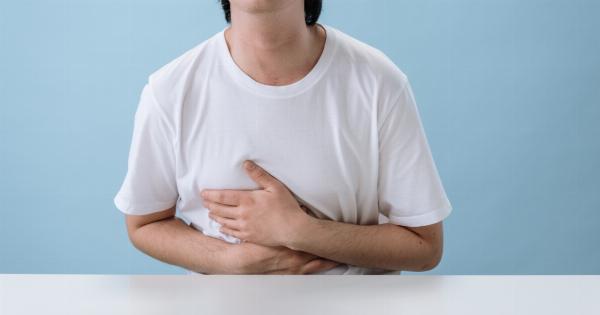Menopause is a natural biological process that occurs in women’s lives, typically between the ages of 45 and 55.
It marks the end of a woman’s reproductive phase, characterized by the cessation of menstrual periods and the decline in hormone production, particularly estrogen and progesterone. Menopause is often accompanied by various physical and emotional symptoms, which can significantly impact a woman’s quality of life.
Menopause Symptoms
Hot flashes, night sweats, mood swings, vaginal dryness, and sleep disturbances are some of the most common symptoms experienced during menopause.
These symptoms occur due to the hormonal fluctuations and imbalances that take place as a woman’s ovaries stop releasing eggs.
While menopause is primarily associated with women, it is important to recognize the potential effects it can have on men as well.
Though men do not experience menopause in the same way as women do, they can suffer from symptoms that are linked to age-related hormonal changes. This phenomenon is often referred to as “andropause” or “male menopause.”.
Male Menopause: Fact or Fiction?
Male menopause, or andropause, is a controversial topic in the medical community. Unlike female menopause, which is characterized by a definitive end to fertility, male menopause is marked by a gradual decline in testosterone levels.
Testosterone is the primary male sex hormone responsible for maintaining reproductive function, muscle mass, bone density, and overall well-being.
During andropause, men may experience a range of symptoms similar to those seen in menopause, including fatigue, decreased libido, erectile dysfunction, mood swings, and depression.
However, it is essential to note that not all men will experience these symptoms or experience them to the same degree.
Understanding the Link: Menopause and Male Suffering
While menopause and male suffering do not represent identical biological processes, there are correlations that can be drawn between the two.
Both menopause and male menopause are associated with declining hormone levels, leading to physiological and psychological changes.
One of the primary hormones affected during menopause is estrogen. Estrogen is not exclusive to women; men produce this hormone as well, although in smaller quantities.
As women’s estrogen levels decline during menopause, men may experience a relative decrease in estrogen as well, which can influence their overall well-being.
Similarly, testosterone levels gradually decline in men as they age. This decline can lead to symptoms commonly associated with male menopause, such as decreased energy levels, reduced muscle mass, and sexual dysfunction.
It is important to note that testosterone decline in men is a natural process and does not have the same abrupt onset as menopause in women.
Treating Menopause and Andropause Symptoms
Addressing symptoms associated with menopause and male menopause often involves hormone replacement therapy (HRT) or other conservative treatments.
For women experiencing menopause, estrogen replacement therapy can help relieve symptoms such as hot flashes and vaginal dryness.
For men suffering from andropause, testosterone replacement therapy (TRT) may be recommended to alleviate symptoms and improve overall well-being. TRT involves supplementing testosterone levels through injections, gels, patches, or pellets..
In addition to medical treatments, lifestyle changes can also be beneficial for managing symptoms. Regular exercise, a balanced diet, stress reduction techniques, and support systems can positively impact the experience of menopause and male menopause.
Conclusion
Menopause and male menopause, while distinct, share similarities due to the hormonal changes that occur during these life transitions. Both men and women may experience various physical and emotional symptoms as a result of declining hormone levels.
Recognizing these correlations can help healthcare professionals develop appropriate treatment plans and support systems to improve the quality of life for individuals experiencing these changes.





























